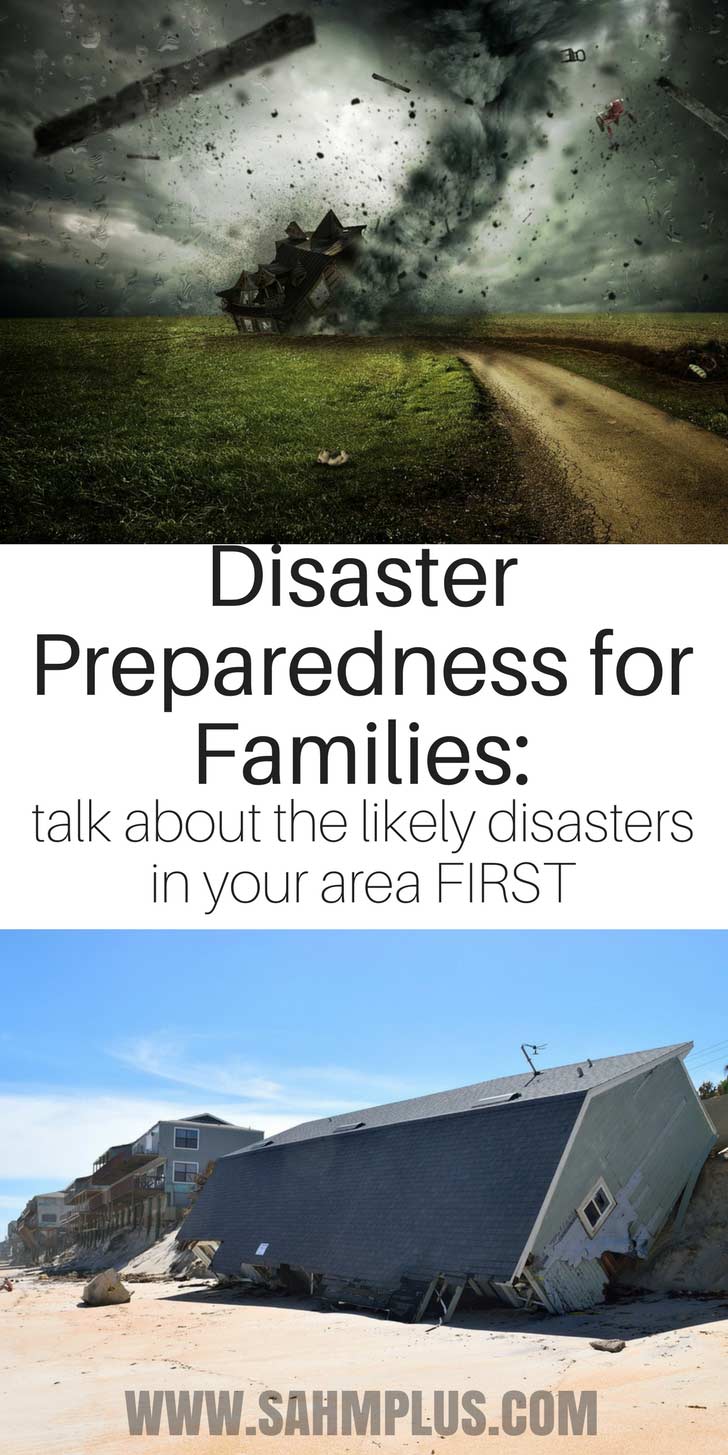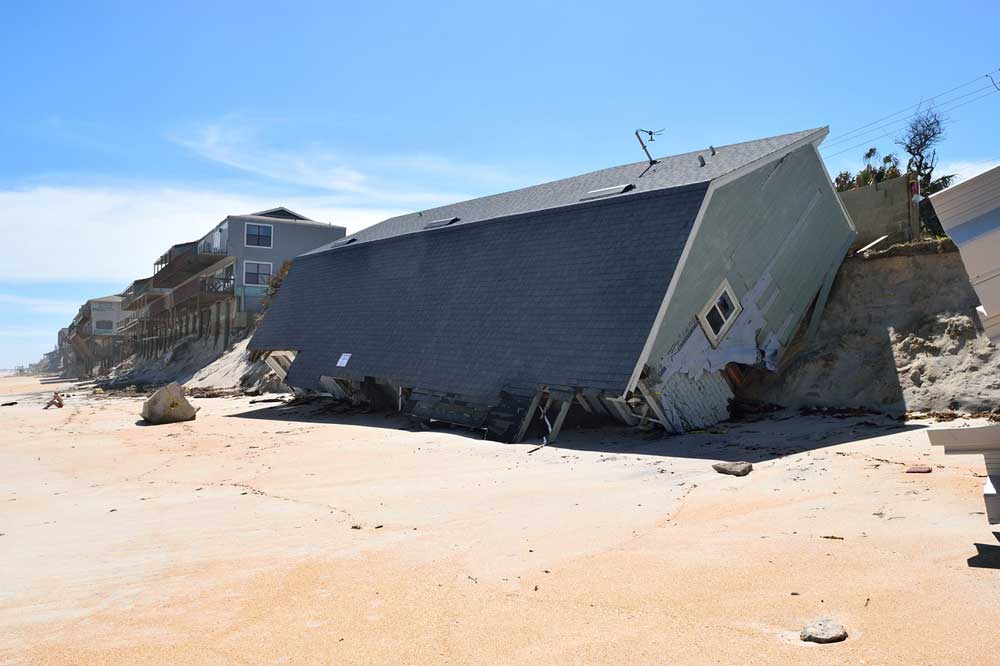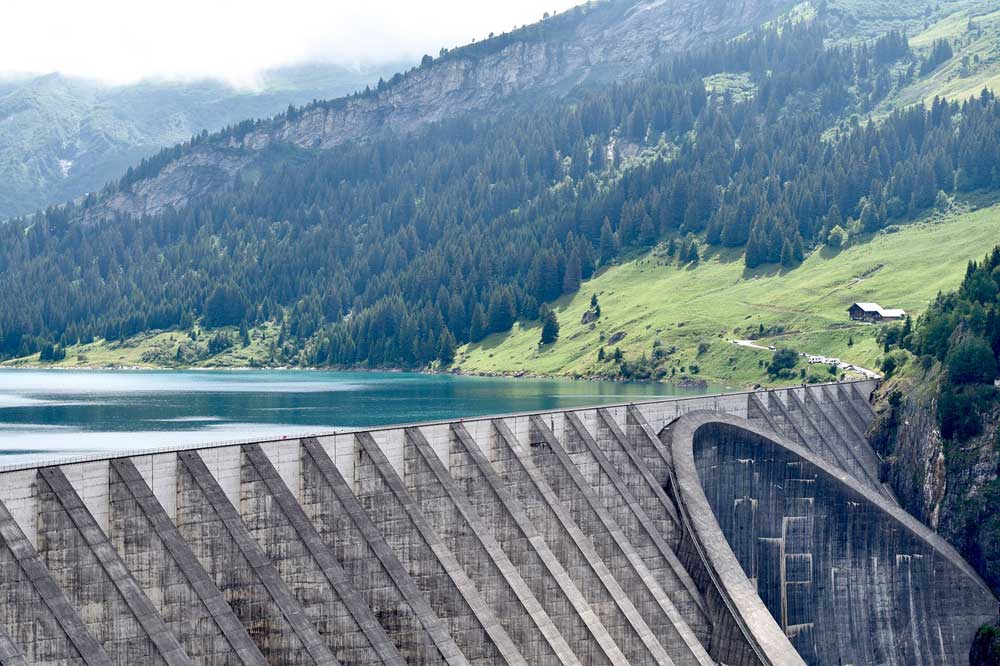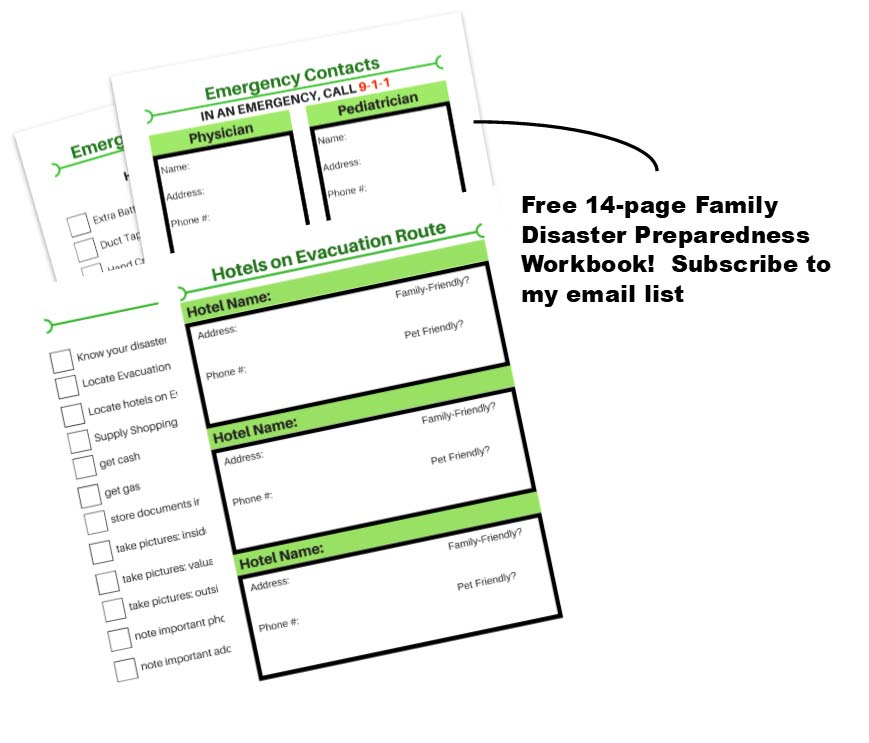Part of parenting involves being ready to make difficult decisions in stressful situations, such as natural disasters. Do you know the types of disasters to prepare for in your area? Is your family ready?
It’s coming up on hurricane season in Florida and I’m reminded of the 2017 Atlantic Hurricane season.
It was the first year I’d ever evacuated my residence, though not really by choice. My husband forced me to take the kids out of state.
Having been a Florida resident all my life, I’ve (unfortunately) learned all the fuss news broadcasters make over hurricanes is usually over the top. Actually, I’d become complacent and hurricane threats seemed only idle threats.
Admittedly, I’d been lucky enough to never have experienced much more than a week without power and water. Plus, up until the last 8 years, I never had children to worry about.
2017, however, my husband made the call. He wasn’t comfortable with the idea of me and the children riding out one of the largest storms we were likely to have seen yet. He’d watched as hurricane Irma demolished Puerto Rico then set its sights on The Keys, slowing making its way up Florida. For the first time I’d ever seen, he wasn’t certain staying home was in our best interest. And, with two young children, we had to think beyond ourselves.
To be honest, I wasn’t prepared for the evacuation. Not only that, if it weren’t for my husband, I wouldn’t have prepared much for the time we might have been without power. Not a wise parenting decision, if we’re being brutally honest. 2017 taught me a few lessons about how I need to approach our disaster preparedness for the family in the future.

No matter where you live, your family may eventually face a disaster leaving you without power, water, or access to obtain either. Some natural disasters come in seasons, while other disasters can be caused by humans. They can cause power grid failures, problems with water supply, or the inability to leave your home for days or weeks at a time.
Either way, disasters can place a burden on your family to stay home without access to things we consider essentials! Disasters of any kind can create tension within the family. With children, their lack of understanding of the situation can also make things more stressful.
Over the next few weeks, I will be sharing a series on emergency preparedness for families. This is what you have to look forward to:
- Discussing the types of disasters to prepare for as a family (this post)
- How to Make an Emergency Preparedness Plan For Your Family
- Survival Food Storage Ideas for Families in a Disaster
- Must-Have Supplies for Your Family Disaster Survival Kit
- How to Stay Positive During an Evacuation Trip with Kids
The first step in emergency preparedness is to know the types of disasters to prepare for as a family.
Do You Know the Types of Disasters to Prepare for as a Family?
To prepare for disasters as a family, it’s important to take account of the disasters with the most likely potential for the area in which you live.
Step 1 – Know the most likely natural disasters
Review the types of disasters your area is prone to and particularly important for natural disaster preparedness.
Those living on the South East coast of the US should prepare for hurricane season.

Those in the North East should prepare for big, seasonal snow storms.
Tornadoes are typically a worry for the Mid-West or South West.

Earthquakes are generally a disaster the West Coast feels, especially in California.
Step 2 – What are the potential man-made disasters for your area?
Review the area around your residence. What man-made disasters could possibly happen?

Do you live near a dam? You may need a plan for flooding.
If you live near a nuclear plant, you’ll need to think about quick escape routes.
Generally, think about the things and places around that could potentially cause an emergency or disaster for which you need to prepare for. Your emergency plan will depend on those variables.
What next?
Once you know the types of disasters to prepare for as a family, you can begin to consider whether or not you will stay home and ride it out. Sometimes, however, that decision may not be within your control, such as in the event of a mandatory evacuation.
Think about what makes the most sense for your family in each situation.
By staying home during a disaster, you’re able to tend to issues as they arise and attempt to prevent further damage. For example, in Florida, during a hurricane, you can board up a busted window or throw a tarp over a roof if a tree falls on it.
Other times, however, evacuating the home with your family may be a safer option for your family. During this instance or when a mandatory evacuation is ordered, you’ll need to know where you are going. Do you have family or friends you can stay with?
If friends or relatives aren’t an option, look into an area where you may wish to travel to. Get the numbers and addresses of a few hotels where you’d prefer to stay. Have them in an emergency preparedness file so you’re able to book quickly.
When a natural or man-made disaster occurs, sometimes there’s not much time to think clearly. You don’t want to waste precious time trying to make decisions, while potentially losing out on a comfortable place to stay with your family.
Finally, though it’s most likely not the most comfortable place to stay, know where local shelters are. Save these as a last resort.
Your turn!
Do you know the types of disasters to prepare for in your area? Have you discussed them with your family?
Would you like more help with your family’s disaster preparedness? I would love to share my 14-page Family Emergency Preparedness Workbook with you. Simply join my email newsletter to receive immediate access to a FREE resource library of printables for parents, including this workbook.


2 comments
disasters can place a burden on your family to stay home without access to things we consider essentials!
This is perfect! Cannot wait to use it!
Comments are closed.